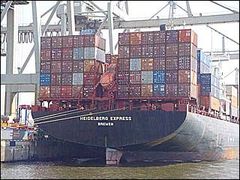 Today marks the fifth anniverary of the September 11, 2001, terrorist attacks in New York and Washington, D.C. As with the Kennedy assassination or any other momentous event, many people can tell you in detail where they were when the attacks took place. I was at my desk in Washington, D.C., busily practicing law--right across from the White House. It's quite unnerving to think about what might have happened to my office (and me in it) if the plane that hit the Pentagon had instead struck the White House, or what might have happened if Flight 93 had not crashed in rural Pennsylvania.
Today marks the fifth anniverary of the September 11, 2001, terrorist attacks in New York and Washington, D.C. As with the Kennedy assassination or any other momentous event, many people can tell you in detail where they were when the attacks took place. I was at my desk in Washington, D.C., busily practicing law--right across from the White House. It's quite unnerving to think about what might have happened to my office (and me in it) if the plane that hit the Pentagon had instead struck the White House, or what might have happened if Flight 93 had not crashed in rural Pennsylvania.So September 11, 2006, is a day of vivid and painful remembrance, and for many the fifth anniversary is a sort of watershed, since no longer is the event in the immediate past. All of my law students right now can remember the attacks vividly--the youngest of them were in high school in 2001--but in five years, that will no longer be the case. Time marches on, and any fifth anniversary is a sobering reminder of that.
Much of my recent research has been on the subject of cargo security, which is a critical element of U.S. national (and in fact global) security. I was interviewed this past week by the Jacksonville Times-Union for a newspaper article on this very subject. That news article ("Cargo Security: A Weak Link?") can be linked to here. My latest law review article on the subject, which will be published in 2007 by the Houston Law Review, can be found online through the "Social Sciences Research Network," or SSRN. The gist of my interview comments and of my law review article is that prior to 9/11, the U.S. tacitly sacrificed cargo security as a means to improve the volume and speed of its international trade flows. After all, our economic well-being depends heavily on imports. In addition, any cargo security functions performed by the U.S. prior to 9/11 were largely carried out at or near the actual, physical border. Following the attacks, however, the U.S. has scrambled to increase its inbound cargo security measures, and one result of this is that we have pushed certain functions associated with our national borders far outward from the actual border. This sort of extraterritorial border functionality raises extremely interesting legal and practical issues, which I discuss in my law review article.
Please note that SSRN is a free service that anyone can use. You have to register in order to use it (by creating a login name and a password), but there is no charge, and it's a great way to find cutting-edge research before it gets published. My author home page on SSRN can be linked to at http://papers.ssrn.com/sol3/cf_dev/AbsByAuth.cfm?per_id=400520, or you can search for my articles by going to SSRN's "Search eLibrary" page and typing my name into the author first name/last name fields.
If anyone has any questions or comments about the news article or law review article, I'd like to hear what you have to say--please post a comment or send me an e-mail at bowman@mc.edu.



No comments:
Post a Comment